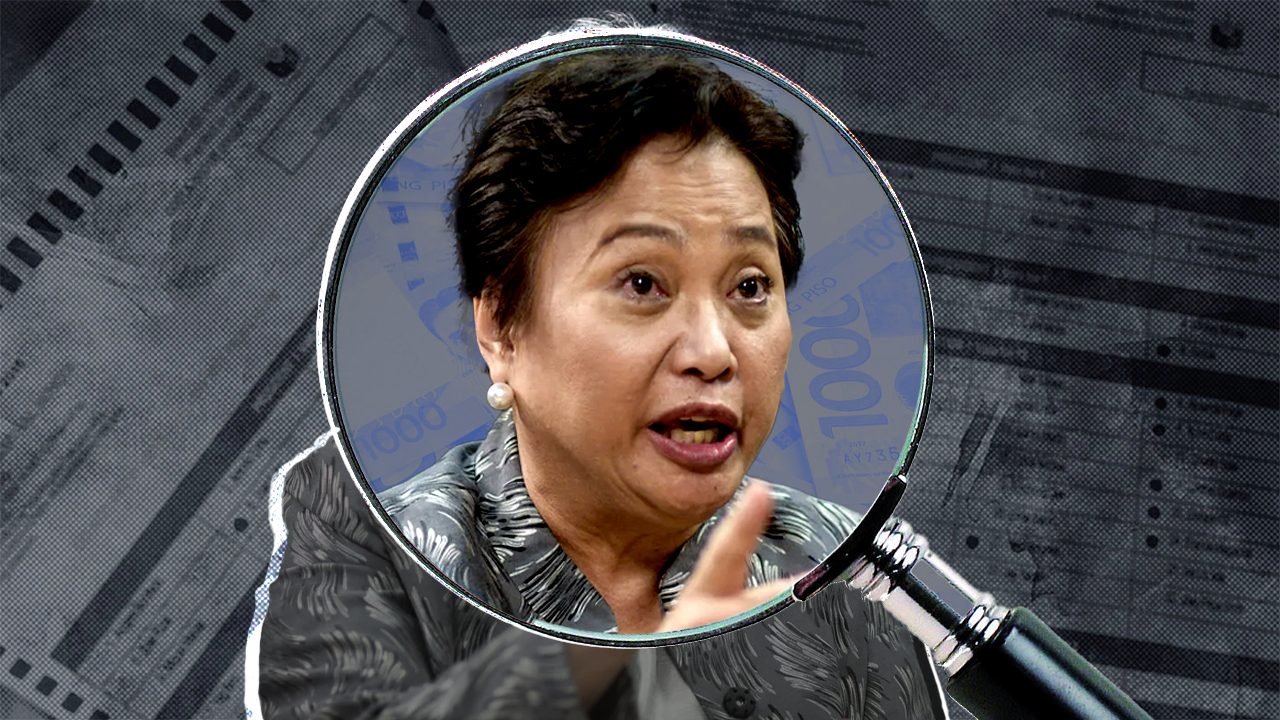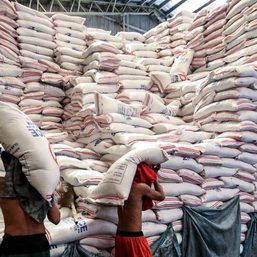SUMMARY
This is AI generated summarization, which may have errors. For context, always refer to the full article.

MANILA, Philippines – Former Commission on Elections (Comelec) commissioner Rowena Guanzon faces a graft case not in relation to corruption allegations, but for publicizing her dissenting opinion in the Comelec ruling that allowed now President Ferdinand Marcos Jr. to run in 2022.
The Office of the Ombudsman, in a resolution approved by Deputy Ombudsman Jose Balmeo, found Guanzon liable for two counts of graft for “prematurely disclosing confidential information.” Although Balmeo is in charge of cases involving military and law enforcement, the resolution shows he is the officer-in-charge of the office, in lieu of Ombudsman Samuel Martires.
RA No. 3019, also known as the Anti-graft and Corrupt Practices Act, is a law against anomalous transactions, usually involving public money. Most of the graft cases deal with Section 3(e) and 3(g) which covers projects and transactions where the public loses, instead of benefits, because of various reasons that range from corruption to just negligence.
“Hindi po ako nagnakaw sa gobyerno (I did not steal from the government),” Guanzon told Rappler.
“Did I make money or favor a litigant? NO. The spirit of the Anti-Graft and Corrupt Practices Act is to punish and prevent corruption. That means there must have been a transaction or information with monetary value. There was none,” said Guanzon.
Guanzon is indicted under Section 3(k) which prohibits “divulging valuable information of a confidential character…. or releasing such information in advance of its authorized release date.”
The questionable act by Guanzon was disclosing to two reporters in January 27 and 28, 2022 her dissenting opinion, where she voted to disqualify Marcos from running for president. At the time, the Comelec en banc still had not promulgated its ruling favoring Marcos, doing so only on February 10 when Guanzon already retired. (Editor’s Note: One of the two interviews that Guanzon gave was to Rappler’s Paterno Esmaquel II.)
“Respondent also divulged that the resolution of the disqualification cases was being intentionally delayed so as to negate her vote for disqualification since she was set to retire on 2 February 2022. In addition, respondent also claimed that powerful people were meddling with the said cases thereby causing the delay in the resolution of the consolidated cases,” the resolution read.
A ‘leading case’
Disclosing votes ahead of promulgation are deemed unethical because they might be seen as trying to influence or pressure the other voting members. Rules are in place to ensure that the leakage of such information will not affect the integrity of courts or quasi-judicial bodies.
In the past, leakages merited contempt charges – but not a graft indictment.
“I don’t know though of any other instance in the past where a constitutional commissioner or quasi-judicial officer has been successfully prosecuted under that section for releasing a draft decision under deliberation. It doesn’t mean that it’s impossible,” University of the Philippines (UP) College of Law lecturer Oliver Xavier Reyes told Rappler.
Reyes said Guanzon’s indictment “could end up a leading case.”
A previous highly similar case was the 1948 case of Abelardo Subido, director of The Manila Post, who wrote about the supposed voting of the High Court “before the promulgation and publication of the ruling in the famous Krivenko case.”
The SC’s Second Division declared Subido guilty of contempt – a concept in place to punish individuals who disrespect the court – and ordered him to pay a certain amount.
“Lawyers and judges though who participate in the leaking/disclosure of confidential court documents are more likely to face administrative proceedings, such as disbarment,” Reyes said.
But Guanzon, unlike Subido, could face a harsher sanction since she faces a graft case, and not contempt.
Graft punishes violators with “imprisonment for not less than one year nor more than ten years, perpetual disqualification from public office.”
Guanzon appeals
Guanzon filed her motion for reconsideration on January 9.
The Ombudsman resolution cited the Comelec’s Resolution No. 10685, which says that confidential information are exempt from the freedom of information rule.
“With respondent’s improper disclosure of confidential information, this Office finds probable cause to indict her for violation of Section 3 (k) of Republic Act No. 3019, as amended,” the resolution read.
Guanzon said it was her duty to disclose to the public that there were politicians meddling with Marcos’ case in the Comelec. She added these people “influenced and dictated” upon some commissioner to favor the then-presidential candidate.
On the confidential information in question, Guanzon explained they did not have internal deliberations on the case because the ponencia or the resolution authored by the commissioner in charge of writing it was not released.
“Kaya, saan naman po ‘yong confidential information na inilabas ko? Sinabi ko lang naman na mag-ingat tayong lahat at sinabi kong, kailangan niya na pong ilabas ang kanyang ponencia para makaboto na po kami ng dalawa pang commissioner,” Guanzon added.
(That’s why, where is the confidential information I gave out? I just said, let us all be cautious and I said, the ponencia should already be issued so that I and the two other commissioners can cast our vote on the case.)
Reyes noted that “unlike some other provisions under Section 3, there is no requirement under 3(k) that it be proven also that the motive for such unauthorized release is the receipt of a gift/bribe or the handing out of a favor. But a corrupt practice does not always mean the receipt of financial benefit; the betrayal of public trust is already a corrupt act,” Reyes told Rappler.
The Ombudsman junked the other complaint against Guanzon for violating the Code of Conduct. Under the Code of Conduct, disclosure of confidential information is also prohibited. But under this law, or Section 7(c), disclosure of confidential information is prohibited if it was done “to further their private interests, or give undue advantage to anyone; or to prejudice the public interest.” This law has a punishment of “imprisonment not exceeding five (5) years, or a fine not exceeding five thousand pesos (P5,000), or both.”
Who filed the complaint?
It was lawyer Ferdinand Topacio, a known supporter of former president Rodrigo Duterte, and Diego Magpantay who filed the three complaints against the then-Comelec commissioner allegedly for disclosing confidential information.
Dylan Santos, Guanzon’s lawyer, said that his client was also asking the Ombudsman for her case to be transferred to another lawyer, and not to the one who signed the ruling. “What she is praying for is fairness. To be assured that we are all treated the same. If you were the one who issued the resolution, how would you review your own work?”
Meanwhile, Guanzon added she asked the Ombudsman to reconsider the resolution since she has confidence in the said office, especially in its procedures for reviewing the resolution.
“I am hoping that a new investigator will give the case a fresh look on review,” she added. – with reports from Lian Buan/Rappler.com
1 comment
How does this make you feel?





![[In This Economy] Marcos’ POGO ban is popular, but will it work?](https://www.rappler.com/tachyon/2024/07/thought-leaders-marcos-pogo-ban.jpg?resize=257%2C257&crop=255px%2C0px%2C720px%2C720px)
![[Rappler Investigates] POGOs no-go as Typhoon Carina exits](https://www.rappler.com/tachyon/2024/07/newsletter-graphics-carina-pogo.jpg?resize=257%2C257&crop=424px%2C0px%2C1080px%2C1080px)








This is a relevant case to watch – a “leading case,” indeed.